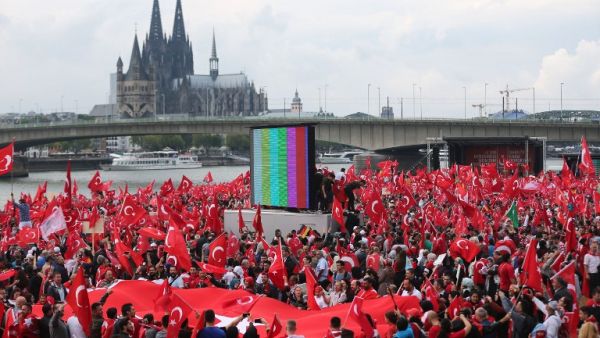Dozens of Turkish diplomats, military officers and their families have sought asylum in Germany since the July 15 coup attempt, local officials said Friday.
The Interior Ministry said 35 Turkish diplomatic passport holders had formally applied for asylum.
The information, given in response to a parliamentary question, did not give any details about the asylum seekers' identities, positions or status of their applications.
Turkey recalled scores of diplomats and military staff in the wake of the foiled coup over suspected ties to Fethullah Gulen, who the Turkish government blames the attempted military takeover.
Many suspects sought asylum in European countries, including the military attache in Berlin, Col. Ayhan Dagli.
The Interior Ministry said any extradition request by the Turkish government would be examined on a case-by-case basis by higher regional courts.
Germany, which has a three million strong Turkish community, is among the countries where Gulen has a large network with dozens of private schools, businesses and media organizations.
Several important Gulenist figures from Turkey, including prosecutors and journalists, are believed to have fled to Germany.
Last month Turkey officially asked the German authorities to locate, arrest and hand over two high-profile prosecutors, Zekeriya Oz and Celal Kara, who are accused of plotting to overthrow the Turkish government.
They played a key role in a controversial anti-corruption probe in late 2013 that targeted the upper reaches of government.
Germany views Gulenists with suspicion but the group is not outlawed in the country, with the authorities stressing that such a move could only come with concrete evidence of criminality.
Gulen's network is primarily focused on interfaith dialogue programs promoting messages of moderate Islam in Germany in what many see as an effort to win the trust of the media and political institutions.








